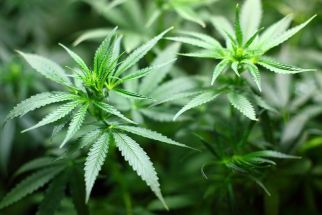Equatorial Guinea president tours BFAR center in Dagupan
May 22, 2006 | 12:00am
DAGUPAN CITY — President Teodoro Obiang Nguema Mbasogo of the Republic of Equatorial Guinea spent a fun-filled day here yesterday, visiting aquaculture projects at the 24-hectare center of the Bureau of Fisheries and Aquatic Resources (BFAR) in Bonuan Binloc and having a close look at the Filipino menfolk’s favorite pastime — cockfighting.
Obiang, accompanied by House Speaker Jose de Venecia Jr., arrived at about 8:45 a.m. and was welcomed by Pangasinan leaders led by Gov. Victor Agbayani, Vice Gov. Oscar Lambino and mayors of the province’s fourth district.
De Venecia said Obiang is the first foreign president to visit Pangasinan, this city and the BFAR center.
Obiang said he was grateful to De Venecia for inviting him here, telling newsmen that he felt at home.
On a sunny day, Obiang and his entourage toured the BFAR center, seeing the agency’s experimental culture of Penaeus vannamei (white shrimp) and development of a genetically improved strain of macrobrachium for the production of freshwater prawns.
Obiang’s group also visited BFAR’s bangus (milkfish) hatchery center, molobicus building for tilapia culture, live fish market, aquarium resto, and aquaculture academy.
Obiang, together with De Venecia and officials of the Department of Agriculture, led the ceremonial seeding of the top-shell Trochus niloticus in the Lingayen Gulf.
Trochus niloticus has an inner thick layer of mother-of-pearl, technically known as nacre. It can grow up to a diameter of 12 centimeters and may live for 12 years.
Nacre is made into jewelry and buttons for highly priced garments.
The current global demand for commercially viable Trochus niloticus is estimated at 7,000 tons annually valued at 50-60 million Australian dollars.
The shells are used for handicrafts and as collectors’ item, while the meat is utilized for non-conventional purposes, according to Dr. Westly Rosario, interim director of the National Fisheries Research and Development Institute and concurrent chief of the National Integrated Fisheries and Technology Development Center.
Through an interpreter, Obiang said he purposely had made arrangements to see local fish culture technologies which he hopes to bring to his country.
"We have to realize that we share common roots, being former colonies (of Spain)," he told reporters.
De Venecia told The STAR that Obiang intends to send 300 students from his country to study BFAR’s aquaculture breakthroughs.
He quoted Obiang as saying that although Equatorial Guinea is rich in oil, they should not be dependent on it and explore other economic projects like aquaculture.
There are about 3,000 Filipinos in Equatorial Guinea, mostly involved in gas processing.
Before taking his lunch at De Venecia’s residence in Bonuan Binloc, Obiang watched a cockfight, which he described as an impressive game, saying he had seen it only in movies.
Obiang, accompanied by House Speaker Jose de Venecia Jr., arrived at about 8:45 a.m. and was welcomed by Pangasinan leaders led by Gov. Victor Agbayani, Vice Gov. Oscar Lambino and mayors of the province’s fourth district.
De Venecia said Obiang is the first foreign president to visit Pangasinan, this city and the BFAR center.
Obiang said he was grateful to De Venecia for inviting him here, telling newsmen that he felt at home.
On a sunny day, Obiang and his entourage toured the BFAR center, seeing the agency’s experimental culture of Penaeus vannamei (white shrimp) and development of a genetically improved strain of macrobrachium for the production of freshwater prawns.
Obiang’s group also visited BFAR’s bangus (milkfish) hatchery center, molobicus building for tilapia culture, live fish market, aquarium resto, and aquaculture academy.
Obiang, together with De Venecia and officials of the Department of Agriculture, led the ceremonial seeding of the top-shell Trochus niloticus in the Lingayen Gulf.
Trochus niloticus has an inner thick layer of mother-of-pearl, technically known as nacre. It can grow up to a diameter of 12 centimeters and may live for 12 years.
Nacre is made into jewelry and buttons for highly priced garments.
The current global demand for commercially viable Trochus niloticus is estimated at 7,000 tons annually valued at 50-60 million Australian dollars.
The shells are used for handicrafts and as collectors’ item, while the meat is utilized for non-conventional purposes, according to Dr. Westly Rosario, interim director of the National Fisheries Research and Development Institute and concurrent chief of the National Integrated Fisheries and Technology Development Center.
Through an interpreter, Obiang said he purposely had made arrangements to see local fish culture technologies which he hopes to bring to his country.
"We have to realize that we share common roots, being former colonies (of Spain)," he told reporters.
De Venecia told The STAR that Obiang intends to send 300 students from his country to study BFAR’s aquaculture breakthroughs.
He quoted Obiang as saying that although Equatorial Guinea is rich in oil, they should not be dependent on it and explore other economic projects like aquaculture.
There are about 3,000 Filipinos in Equatorial Guinea, mostly involved in gas processing.
Before taking his lunch at De Venecia’s residence in Bonuan Binloc, Obiang watched a cockfight, which he described as an impressive game, saying he had seen it only in movies.
BrandSpace Articles
<
>
- Latest
- Trending
Trending
Latest
Trending
Latest
Recommended






























